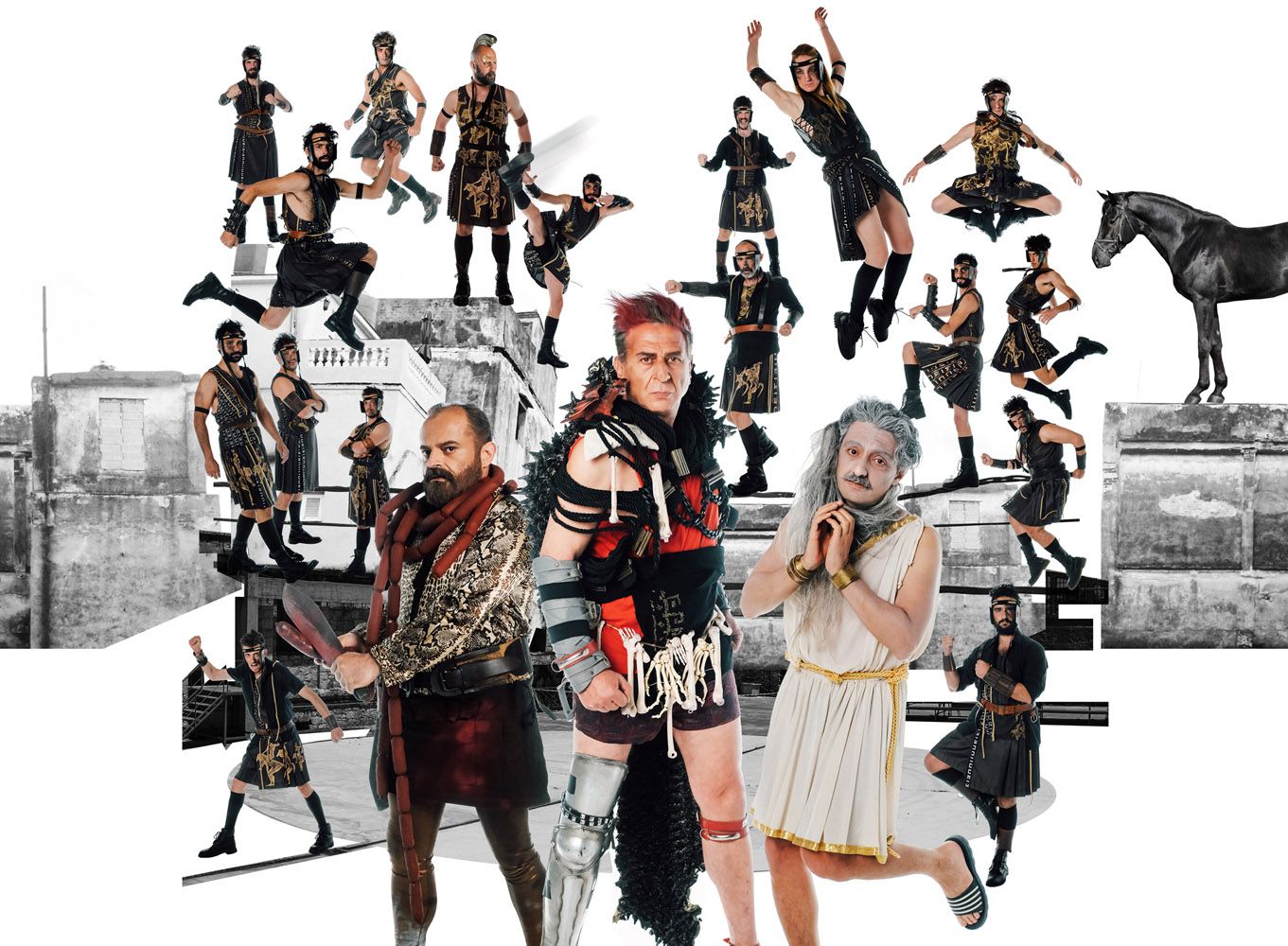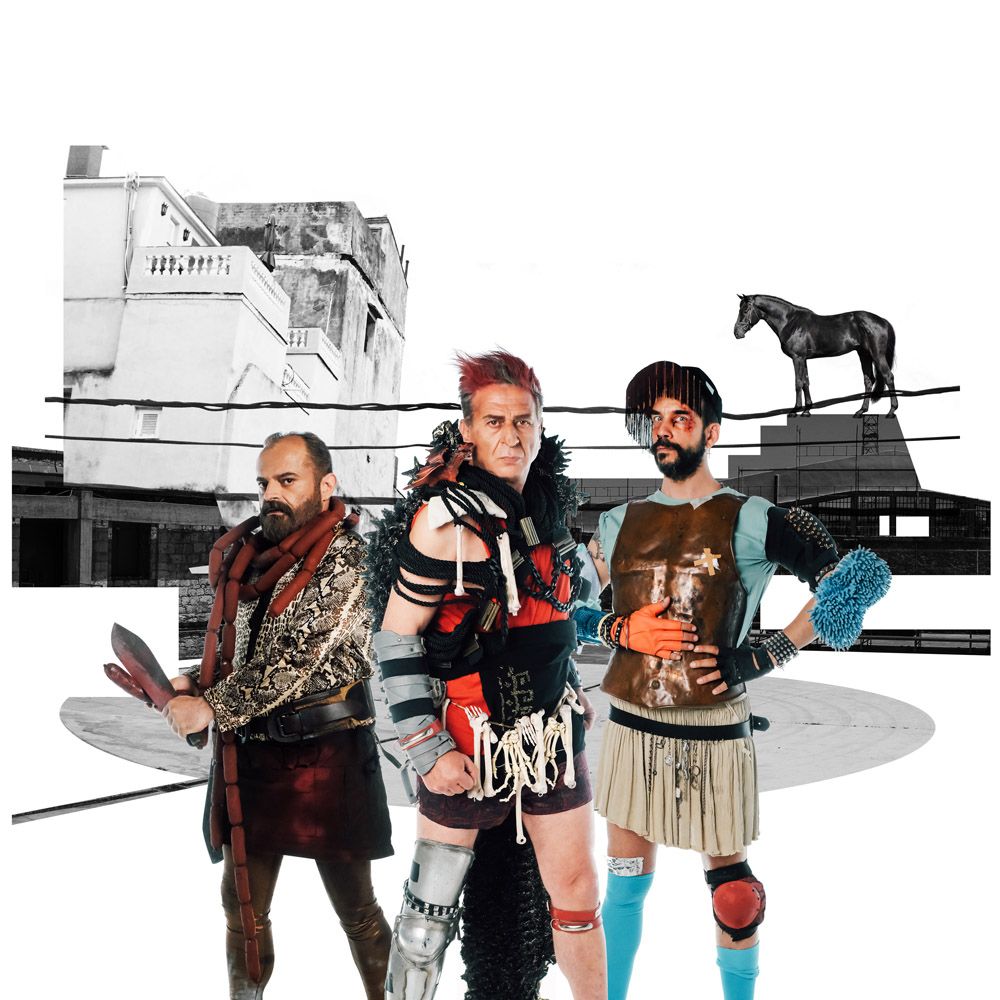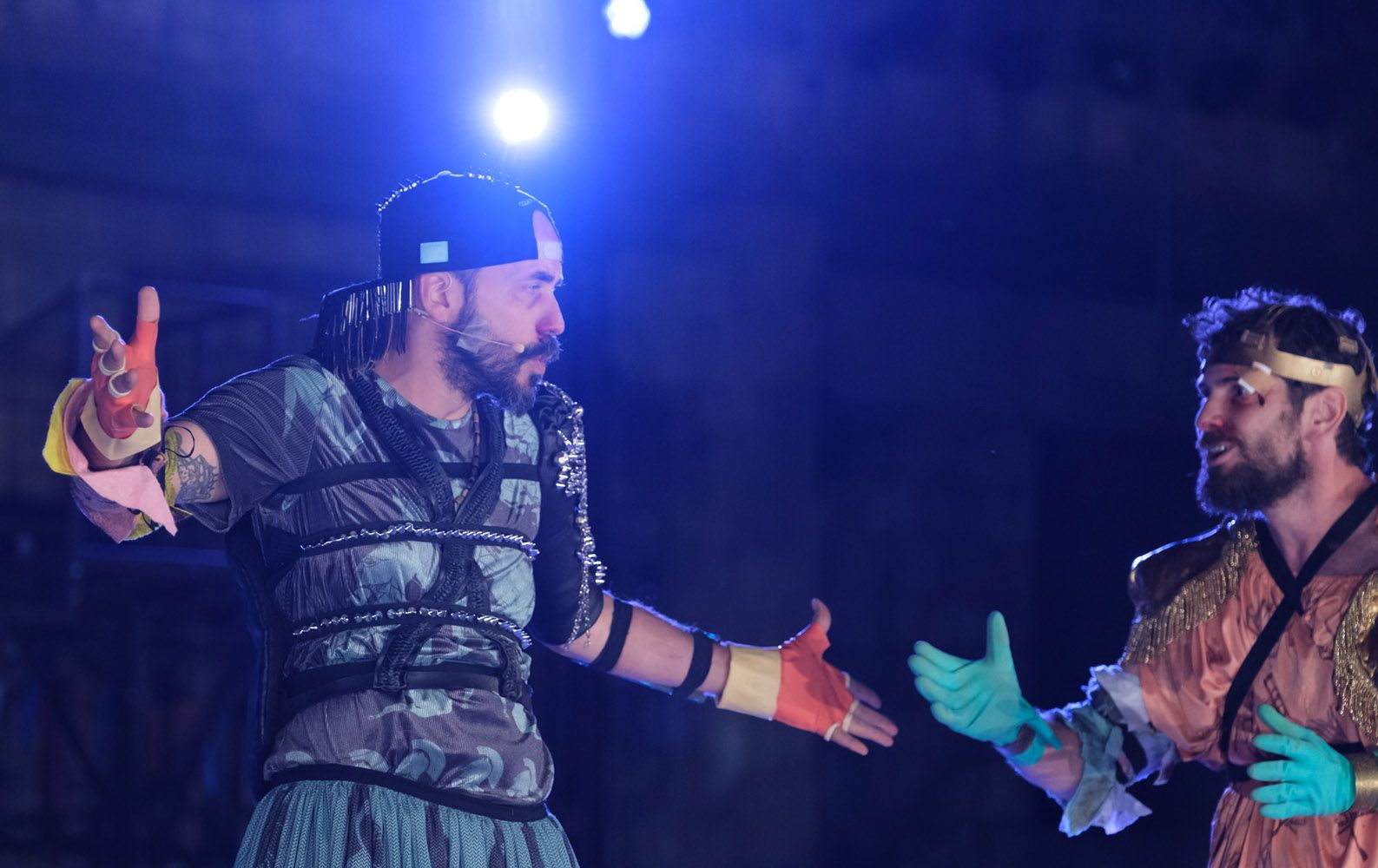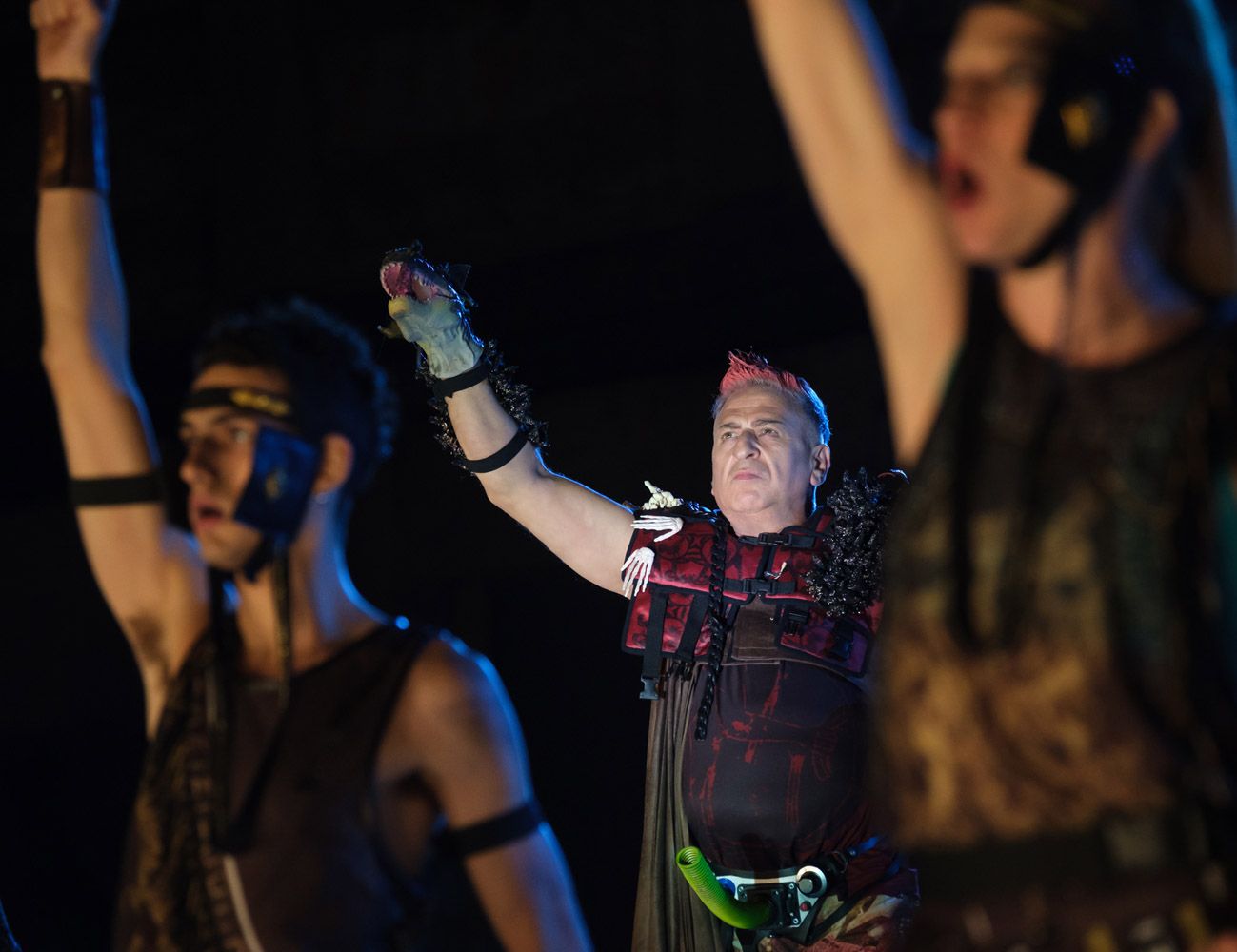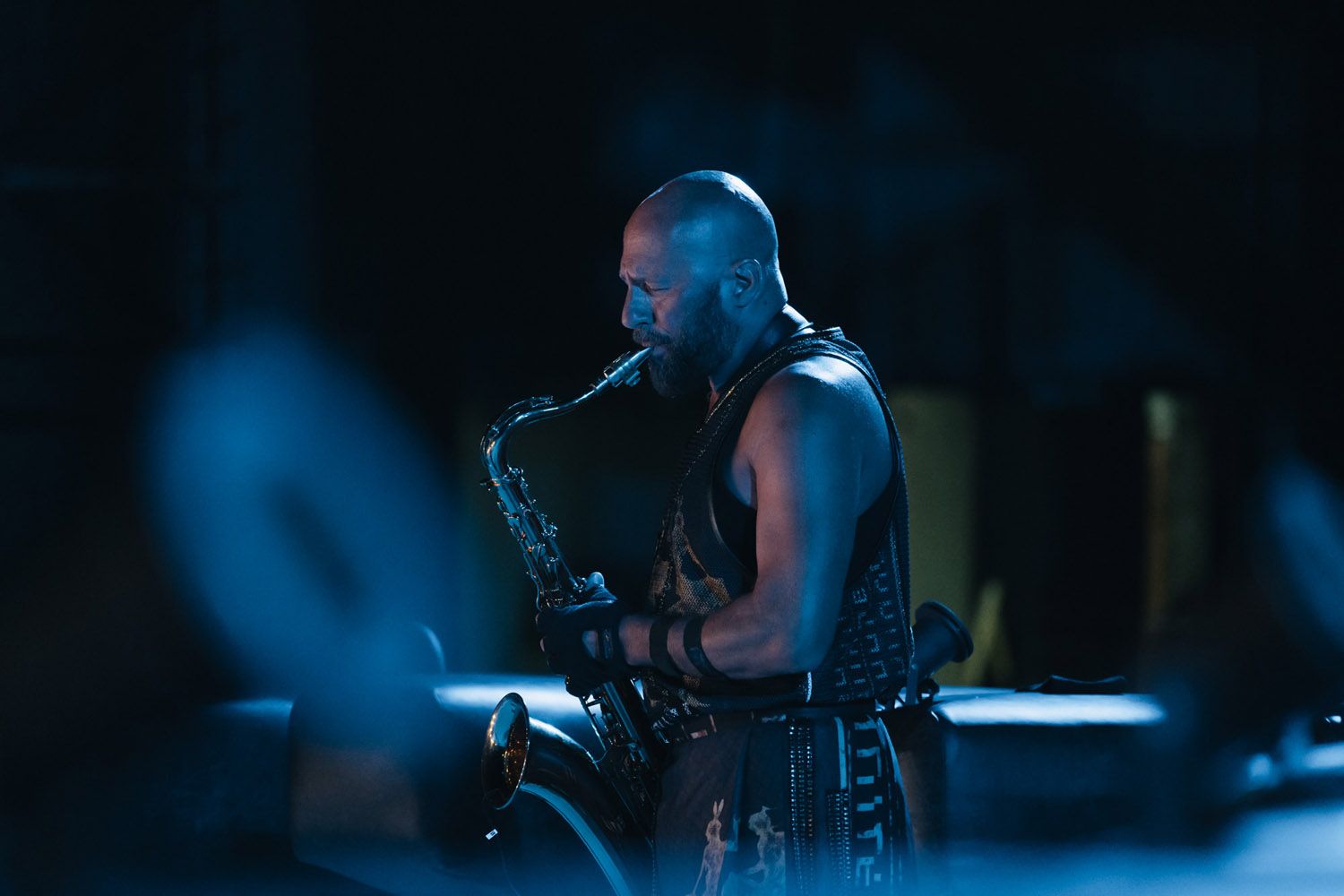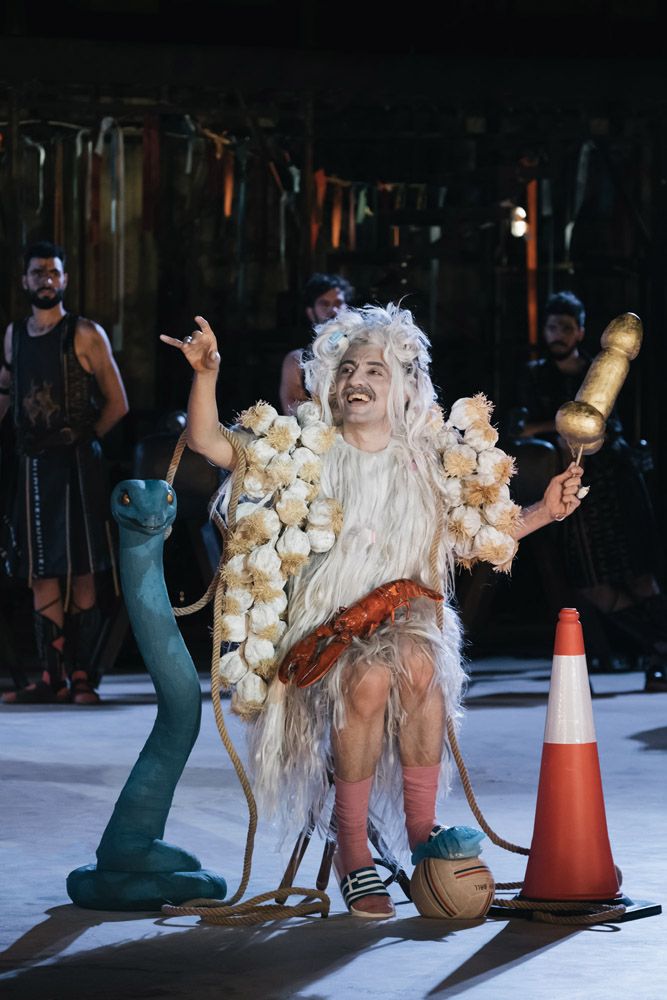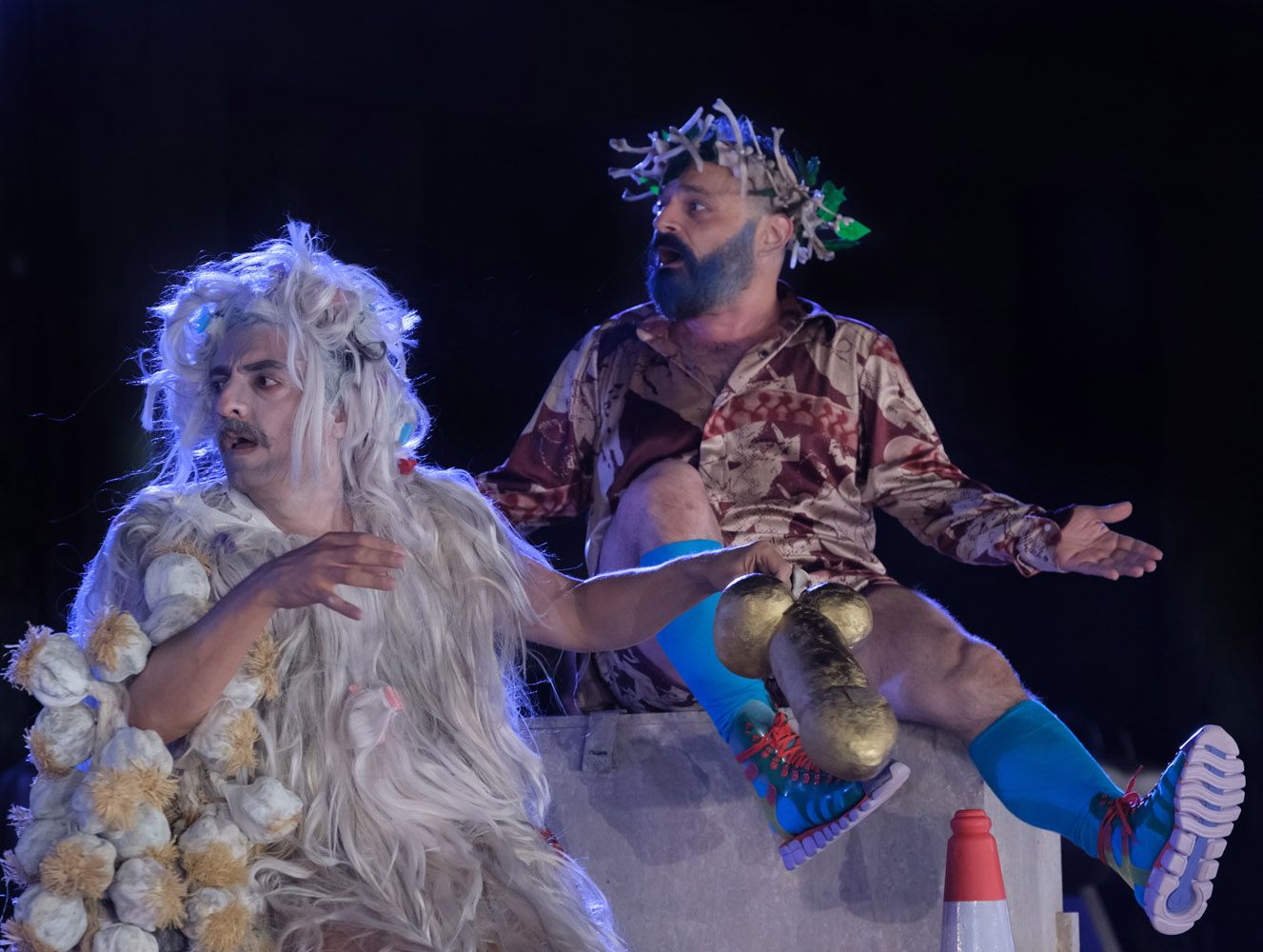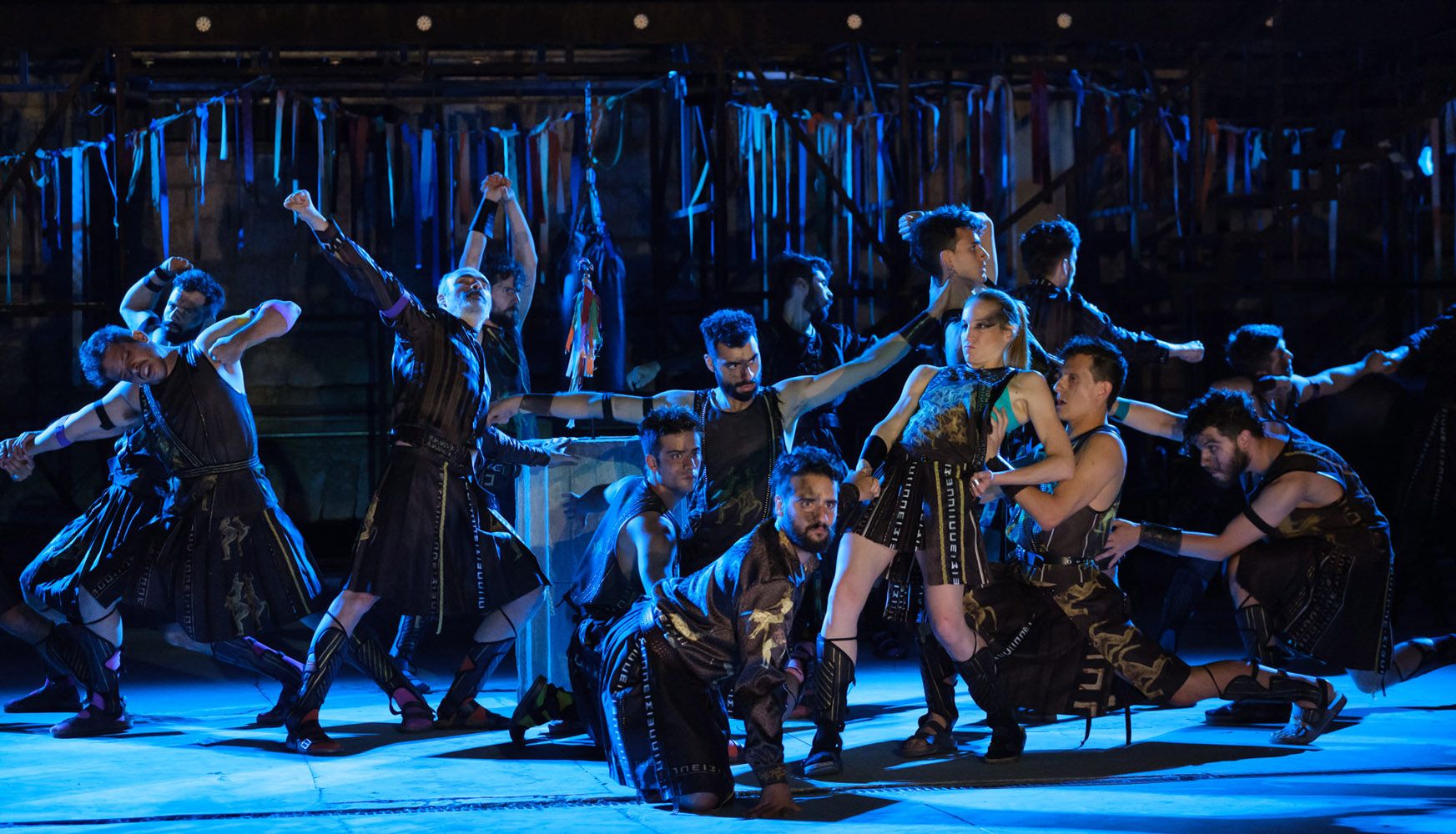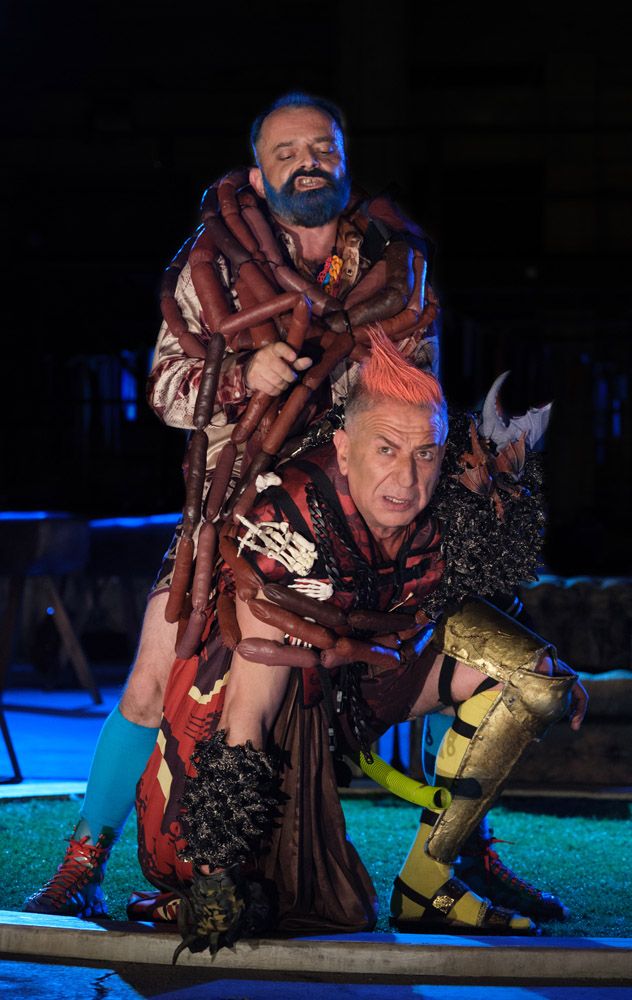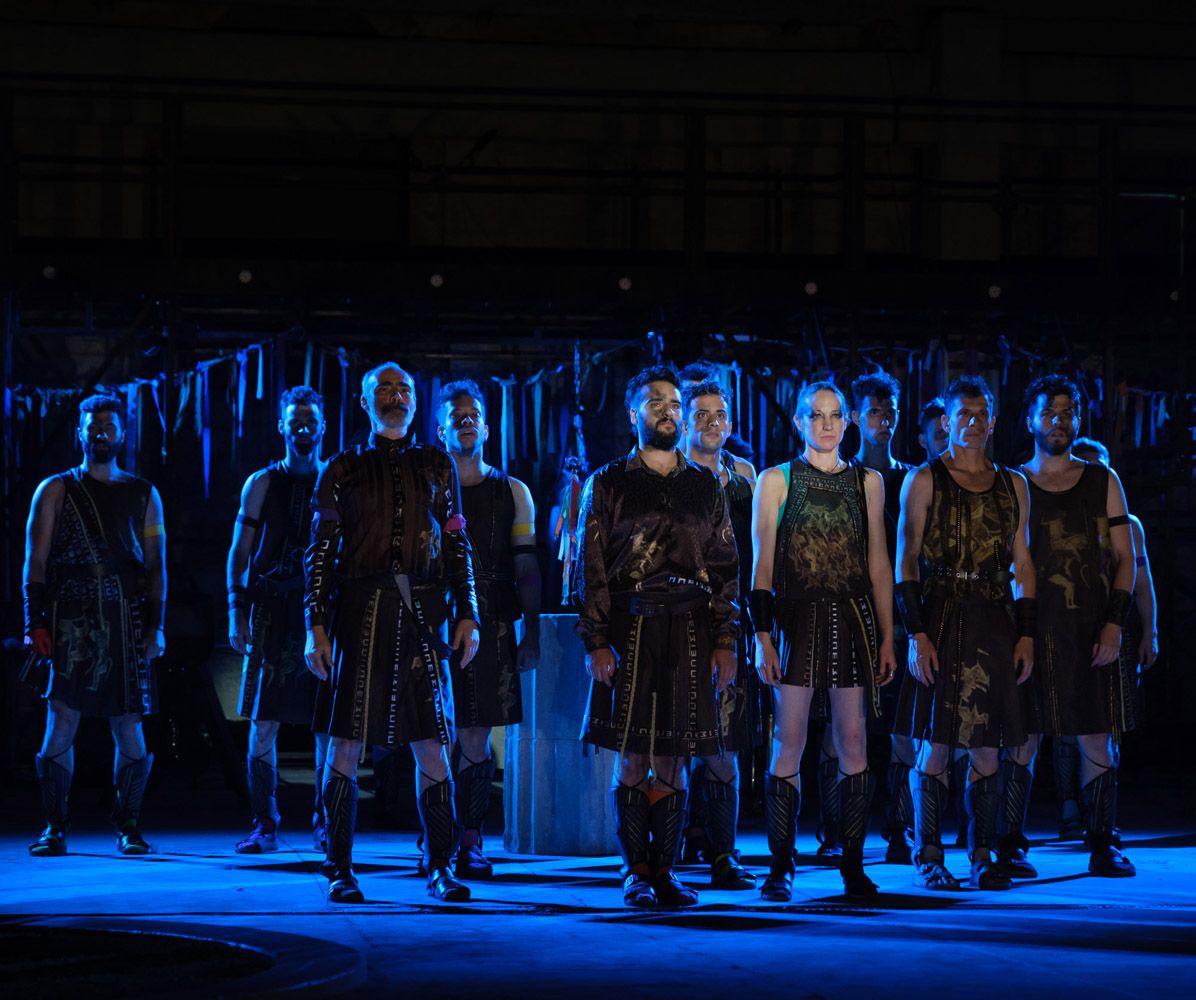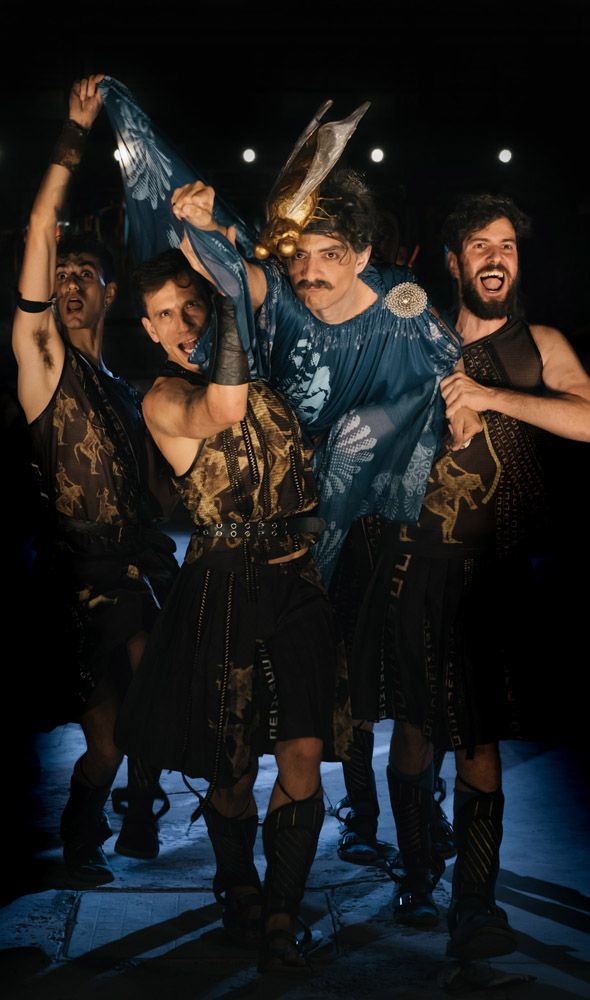THE KNIGHTS by Aristophanes
- Friday, July 16Curium Ancient Theatre
- Saturday, July 17Curium Ancient Theatre
- Performances start at:21:00Please arrive at the theatre before 20:00
The National Theatre of Greece returns to the Festival eleven years later with Aristophanes’ comedy The Knights, directed by the distinguished choreographer and director Konstantinos Rigos and featuring an outstanding cast.
The main character, Paphlagonian, is inspired by Cleon, the politician who ruled Athens in the wake of Pericles’ death and the Athenians’ triumphant victory over the Spartans in Pylos (425 BC). Through his portrayal of Cleon, Aristophanes launches a scathing attack on corrupt politicians and demagogues who use power for their own ends. The hilarious plot leads to a bitter conclusion: if wickedness, gumption and vulgarity are the qualities of a politician then the most skilful in these shall always prevail on the political arena…
The Knights, one of the poet’s most “political” comedies, allegorical and full of symbolisms, contemporary as ever, scolds the mismanagement and misconduct of power that led to decline, misery and decay and warns the citizens of every era about the dangers lurking in the foundations of the Republic.
- With English surtitles
- Translation:
Sotiris Kakisis
- Direction-Choreography:
Konstantinos Rigos
- Music:
Ted Regklis
- Set design:
Konstantinos Rigos, Mary Tsangari
- Costume design:
Natassa Dimitriou
- Lighting design:
Christos Tziogkas
- Associate choreographer:
Markella Manoliadi
- Director’s assistant:
Angelos Panagopoulos
- Music coach:
Melina Peonidou
- Second Director’s assistant:
Christina Stefanidi
- Set designer’s assistant:
Alegia Papageorgiou
- Costume designer’s assistants:
Alisa Boulat, Katerina Kostaki
- Dramaturg:
Eva Saraga
Cast (in alphabetical order):
- Sausage seller:
Konstantinos Avarikiotis
- Demos:
Stelios Iakovidis
- Cleon:
Kostas Koklas
- Demosthenes:
Panos Mouzourakis
- Nicias:
Konstantinos Plemmenos
- Coryphaeus:
Konstantinos Bibis (ukulele),
Stefania Goulioti,
Giannis Harisis - Chorus:
Paris Alexandropoulos,
Vassilis Boutsikos (guitar),
Thanos Grivas (guitar),
Constantinos Kaikis,
Giannis Karababas (guitar),
Alkiviadis Maggonas (clarinet),
Giorgos Paterakis (guitar),
Konstantinos Plemmenos,
Periklis Siountas (bayan),
Giorgos Skarlatos (euphonium),
Antonis Stamopoulos (guitar),
Alexandros Vardaxoglou,
Panos Zygouros (melodica) - Musician on stage:
Laertis Malkotsis (saxophone)
Director’s note
Nobles or followers? Invaders or tourists? Victims or aggressors? The Knights are an enigma, but it is a play that is now more topical than ever, in this post-truth era of fake news and virtual reality.
It is a comedy that reaches beyond Aristophanes’ own time into a future only now taking shape. The backdrop to it is made up of a host of rabble-rousing politicians, a disoriented democracy, indifference to the well-being of the body politic, slander, poverty, a war that looks as if it will never end, and the fear of a new outbreak of an epidemic that has already left thousands of dead.
With their warlike appearance, the Knights conspire with Aristophanes to topple those in power in a frightened and blighted city. In the battle between the two toxic politicians, the playwright presents humanity as a necessary element of power which is trampled beneath the extreme methods employed by his protagonists.
Konstantinos Rigos
NATIONAL THEATRE OF GREECE
Greece’s first state theatre company was the Royal Theatre, which was founded in 1901 and operated until 1908. It was reestablished under the name National Theatre in 1930 and opened for the public in March 1932. The National Theatre of Greece, during its 90 years of existence, has succeeded in creating a powerful theatrical tradition.
The repertory of the National Theatre aims at polyphony, promoting a dialogue between tradition, present and future. The revival of Ancient Greek Drama remains a key area of interest for the National Theatre in an effort to combine respect for tradition with new trends. In 1938 the National Theatre of Greece performed its first open-air production of ancient drama, Sophocles’ Electra; the first performance after centuries at the Ancient Theatre of Epidaurus. In 1955 the NTG established the Festival of Epidaurus.
Today, there are six venues in the National Theatre in Ziller Building, in Rex Theatre and the School of Athens – Irene Papas (open-air venue). The National Theatre is always open to collaborations with theatres and artists – tours, joint productions with major theatres abroad, participation in international festivals, educational programs, invitations to important contemporary artists; these are all part of the effort to broaden an already established network. Since 2009 the NTG has also been a member of the European Theatre’s Union.
The Artistic Director of the National Theatre of Greece is the dramaturg – translator Erie Kyrgia.
